So Extinction Rebellion (XR) and Animal Rebellion (AR) have just finished a 10 day series of public protests which have involved disruptive stunts, a lot of superglue and a pretty significant number of activists sacrificing themselves to be arrested in the name of pioneering important social change.
Photo source: Animal Rebellion Facebook Page
The groups’ controversial actions included stunts called ‘Free The Truth’, ‘Letter For Our future’ and ‘Can’t Bare The Truth’ which all resulted in arrests.

WHY ARE THEY PROTESTING?
A lot of people have heard of Extinction Rebellion, but in case you haven’t, XR is a movement set up to campaign for climate justice. They use non-violent direct action to apply public pressure to local governments throughout the world. This is done with the hope of enforcing legislation that will ensure systematic improvements to deal with the current ecological emergency. In London for the past 10 days, their focus has been primarily on pushing through the Climate and Ecological Emergency Bill (CEE Bill) which demands for the following:
The below list is taken directly from the XR website:
- A serious plan to deal with the UK’s fair share of emissions and to halt critical rises in global temperatures.
- Our entire carbon footprint be taken into account – in the UK and overseas.
- The active conservation and restoration of nature here and overseas, recognising the damage we cause through the goods we import.
- Those in power not to depend on future technologies to save the day; technologies that are used as an excuse for us to carry on polluting.
- Ordinary people to have a real say on the right way forward in a Citizens’ Assembly with bite.
Animal Rebellion are the ‘sister’ organisation that also campaign for climate justice but primarily from the perspective of ending animal exploitation. AR want to implement change through the introduction of a plant based food system.

Source: Animal Rebellion Facebook Page 
Source: Animal Rebellion Facebook Page
They’re doing this because animal agriculture is responsible for contributing to more greenhouse gases globally (14.5%) than all of the transport industries combined (14%). This year has also proven how the exploitation of animals is catastrophic for us all with the emergence of the Coronavirus pandemic.
The outbreak of Coronavirus, which has been linked back to a ‘wet market’ (live animal market) based in Wuhan, China, has reminded us what we’ve been told many times before – that 75% of all emerging infectious diseases are zoonotic (meaning they originate in animals). This has been directly reported by the UN Environmental Foundation and many other credible sources.
HIV, Ebola, SARS, MERS, the Zika virus and Bird Flu are all other examples of zoonotic diseases that have made the genetic jump to infecting humans. Without the exploitation of animals and them being forced into extremely unsanitary conditions, left to sit for hours in their own faeces, in cramped cages and often exposed to blood of various other species, both alive and dead, it is unlikely that these wild cross-species mutations would have had the opportunity to occur.
WHAT DOES THE SCIENCE SAY?
According to the World Meteorological Organisation (WMO), the 20 warmest years on record were in the last 22 years and the last four years have been the warmest ever. NASA presents data that reflects the earth has heated by around 1 degree centigrade since pre-industrial times alone. The Bulletin of the Atomic Scientists report on 2019 witnessing the highest ever levels of heat energy being absorbed by our oceans – equivalent to five Hiroshima atomic bombs per second, every second, over the last 25 years!
Due to the proven rising temperature of our planet and the horrifying forecast of what the future has in store once we breach a 1.5 degree increase, on the 22nd of April 2016, 175 world leaders signed the Paris Agreement at United Nations Headquarters in New York (which was the largest number of countries to sign an international agreement in one day). This agreement committed a total of 186 countries to strengthen their nation’s response in order to keep the global temperature from rising over 2 degrees centigrade this century.
If planned actions to combat climate change are not implemented, we could be facing a 4 degree temperature rise. That means that the Earth will almost have heated the same amount (4.5 degrees) since the industrial revolution as what it has in the last 17000 years!
THE EARTH’S GETTING HOTTER…SO WHAT?!
Now we’ve all been hearing about this ‘global warming’ malarkey for the best part of 20 years but most of us don’t really understand what it really means and how it’s going to affect us in our lifetimes – mainly because it hasn’t been clearly reported. As much as we may have enjoyed our hotter summers and more moderate winters in recent years, it’s time to ask is this really affecting us negatively now? And have we realised how detrimental this could be for our futures?
Seeing as a 1 degree increase has already brought about more than 200 ‘natural disasters’ in this year alone including the heartbreaking Amazonian fires, the Australian bush fires which killed 33 humans, 3 billion animals and burnt an land area that equates to the size of South Korea, the British floods following the fallout of Storm Dennis, the strongest ever cyclone recorded in the Bay of Bengal, Cyclone Amphan, and the devastating drought in Eastern Africa which lead to the outbreak of crop destroying locusts leaving people starving and destitute. These are just a few of the natural disasters that have occurred this year and there are going to be plenty more to come.
Deforestation, burning fossil fuels and animal agriculture make up the most significant contributors to the release of greenhouse gases carbon dioxide, methane, nitrous oxide and fluorinated gases. Continuing at our current rate of emissions, the ice caps will continue to melt beyond the point of return, as a result the sea will rise and we expect to see hurricanes, floods, droughts, agricultural failures and other natural disasters such as devastating global mangrove loss. These devastating events will result in areas of the world becoming uninhabitable, a drastic loss of biodiversity, human displacement, unemployment, crop failure, starvation and ultimately death for many – we are entering into the world’s sixth mass extinction! The World Heath Organisation (WHO) predicted that between 2030 and 2050 up to 250,000 additional deaths will occur each year due to climate change alone.
These effects will inevitably be felt by the poorest and most vulnerable populations first but will eventually also impact the middle and upper classes, too. When the availability of resources diminish, prices go up and accessibility goes down – that’s something nobody will be able to avoid.
Plus, we are going to see some of the most incredible natural wonders diminish or even disappear altogether. The infamous corals of the Great Barrier Reef, the Dead Sea in the Middle East, even entire countries like The Maldives are under threat of being entirely wiped out if we don’t act now to curb the rising temperatures.
Life on Earth is in crisis: scientists agree we have entered a period of abrupt climate breakdown, and we are in the midst of a mass extinction of our own making.
Extinction Rebellion
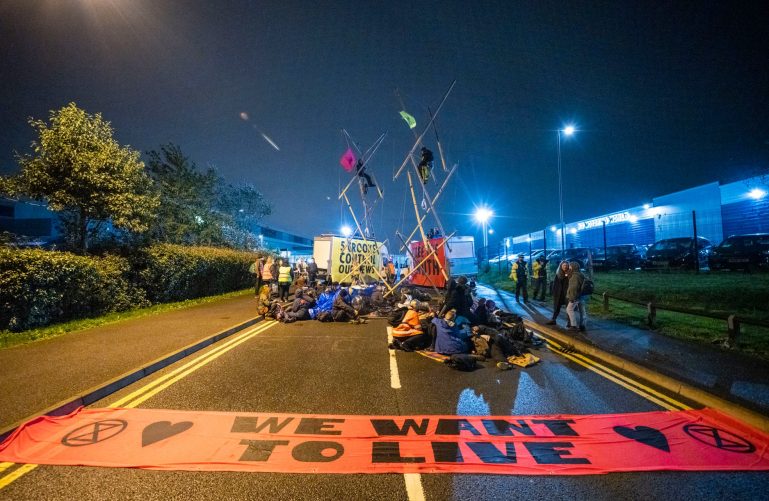
Government must act now to halt biodiversity loss and reduce greenhouse gas emissions to net zero by 2025.
XR state as one of their ‘demands’
CAN CORONAVIRUS CHANGE OUR ATTITUDE?
The swift global response to the Coronavirus outbreak serves as evidence to prove how quickly habits can be changed. In the height of European lockdown in early April 2020, the daily global fossil CO2 emissions fell by 17% compared to the same time the year before yet were only equivalent to levels all the way back from 2006. This demonstrates our growing dependence on fossil fuels for energy and draws attention to how drastically it has increased across the last 14 years.
This dramatic reduction in pollution saw nature restore itself impressively rapidly all over the world. Jellyfish, swans, schools of fish and even dolphins were reported to have returned to the crystal clear canals of Venice, a natural place that was once overrun by tourists. Deer were spotted grazing by The White House. Wild boar were roaming in Barcelona… The list goes on.
This pandemic has made many of us realise how we humans have such a direct impact on the natural world around us and that we need to be more mindful of how we’re impacting the Earth’s natural balance and all the wildlife that also depend on it.
ARE XR AND AR WRONG TO PROTEST?
I know public demonstrations can be disruptive and irritating to some people but let’s take a minute to ask ourselves why XR, AR and many other organisations take this approach. Here’s a really useful video that offers insight:
MY PERSPECTIVE ON DIRECT ACTION
I took part in the protests with Animal Rebellion because I firmly believe in all that XR and AR stand for. And despite having spent a year and a half of my life cycling alone across the world, championing my cause peacefully and doing outreach such as giving public speeches (including my TEDx Talk) and leading educational workshops everywhere and anywhere I could, no British news wanted to cover my story or listen to the informative and positive messages I had to share. In fact, when the BBC did cover my story, they didn’t even talk about my goals and instead reported the wrong information about my time during Coronavirus.
The point I’m making is that people can criticise direct action groups for temporarily inconveniencing their days but we are fighting for our futures and there simply isn’t time to spare! Without civil disobedience, a lot of money, a huge dose of luck or an elite personal connection, unfortunately you are largely ignored through the mainstream news channels. The media reports on tragedies and drama and if you don’t create a story that invokes a reaction, you fall by the wayside.
As the XR video shows above, when we look at patterns of social development throughout history, we can see how necessary direct action protests are, no matter how inconvenient they may seem.
Women’s rights direct actions which were led by the Suffragettes was also considered ‘inconvenient’ at the time despite people agreeing with their cause, but without those actions and the sacrifice of some brave individuals’ personal liberties, how much would have actually been achieved?
The same can be said for African American rights and the anti slavery movement – black people are still suffering inequality today, can we even begin to imagine if no one had ever taken direct action? (Click here to read about why #BlackLivesMatter.)
Well now we have to fight with direct action to combat the climate emergency as well.
So direct action may well be a nuisance but in my opinion, it is indeed necessary.
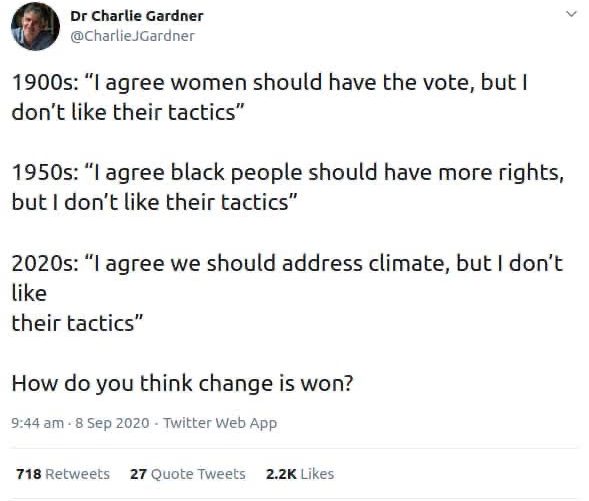
WHAT CAN YOU DO TO HELP?
By supporting the Climate and Ecological Emergency Bill, you’d be supporting the introduction of a citizens’ assembly which would give the power to our diverse people, from all backgrounds and ethnicities, to receive thorough education on our climate crisis and enable them to vote and make decisions to save our planet and our futures.
- Click here to join The CEE Bill campaign
- Do your homework! Find out for yourself and do some more research on this topic – then talk about it with your friends and family!
- Get involved with your local action groups. Click here for XR and here for AR
- Write to your local MP adding further pressure to our government listing your serious concerns over the current ecological disaster as we enter into the sixth mass extinction (templates are available on the XR and AR websites)
- Write to and boycott companies (like Shell, BP, Barclays and HSBC) that invest in damaging economic expansion encouraging them to take corporate social responsibility and generate clean, green money for the economy
- Introduce eco-friendly changes into your life such as walking and cycling more, incorporating a vegan diet, recycling and upcycling and shopping locally. (Check out my 10 Easy Tips for Being More Eco Friendly and How to Embrace Zero Waste Living While Travelling blogs and Vegan Recipes Page for more help and advice!)
- Cut down your use of single use plastic – try out the Friends of the Earth #DrasticOnPlastic challenge
- Donate money to XR, AR or a wildlife conservation charity
- Share information via your social media channels
Thank you for reading, I hope you’ve found it useful and informative and perhaps this blog has given you an alternative perspective on non-violent direct action and the approach of Extinction Rebellion, Animal Rebellion and myself on our attempts to tackle the climate and ecological emergency.
If you’ve found some value in this article, please help to spread the word and click the share button! 🙂
Peace and love always, Han x
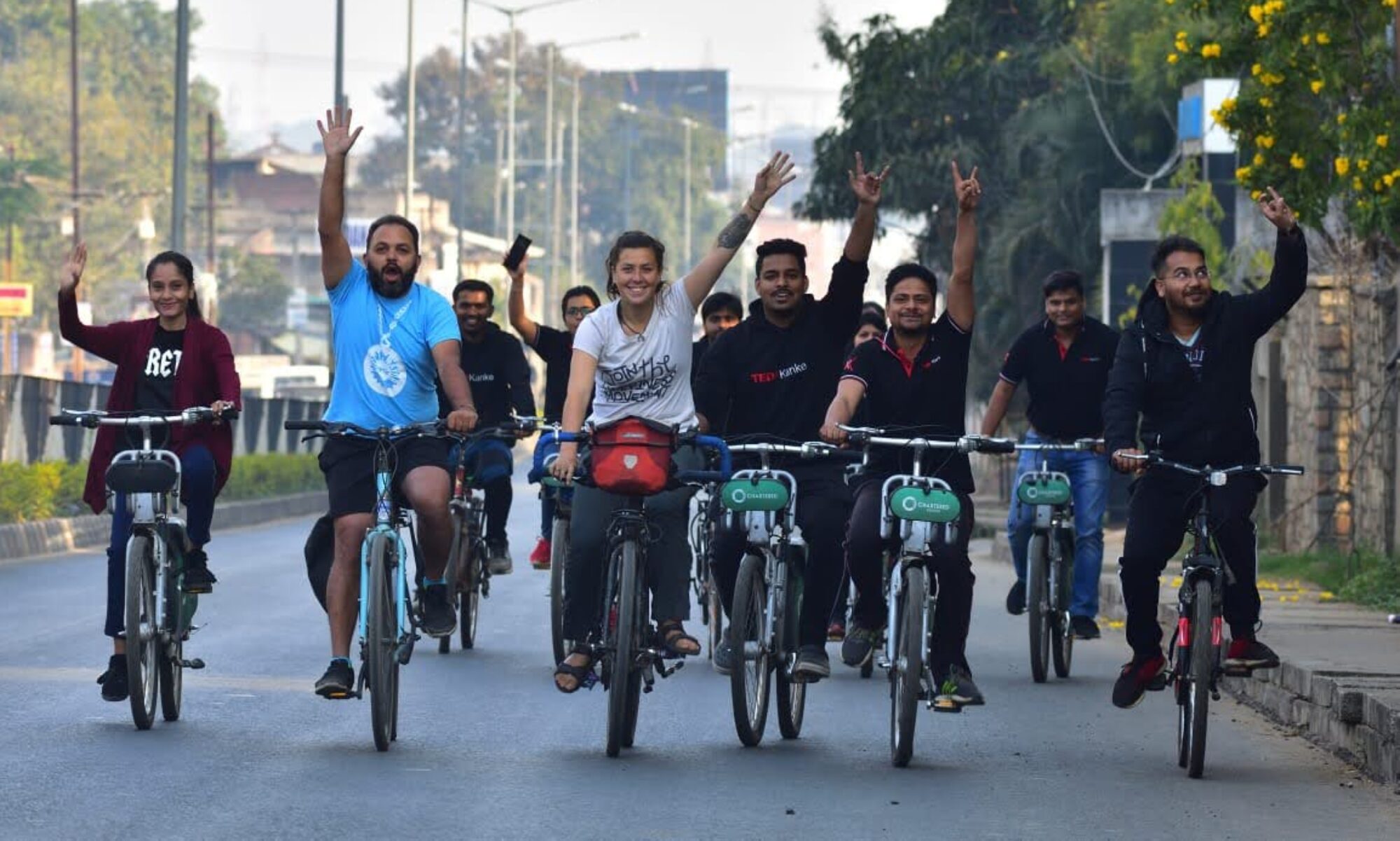

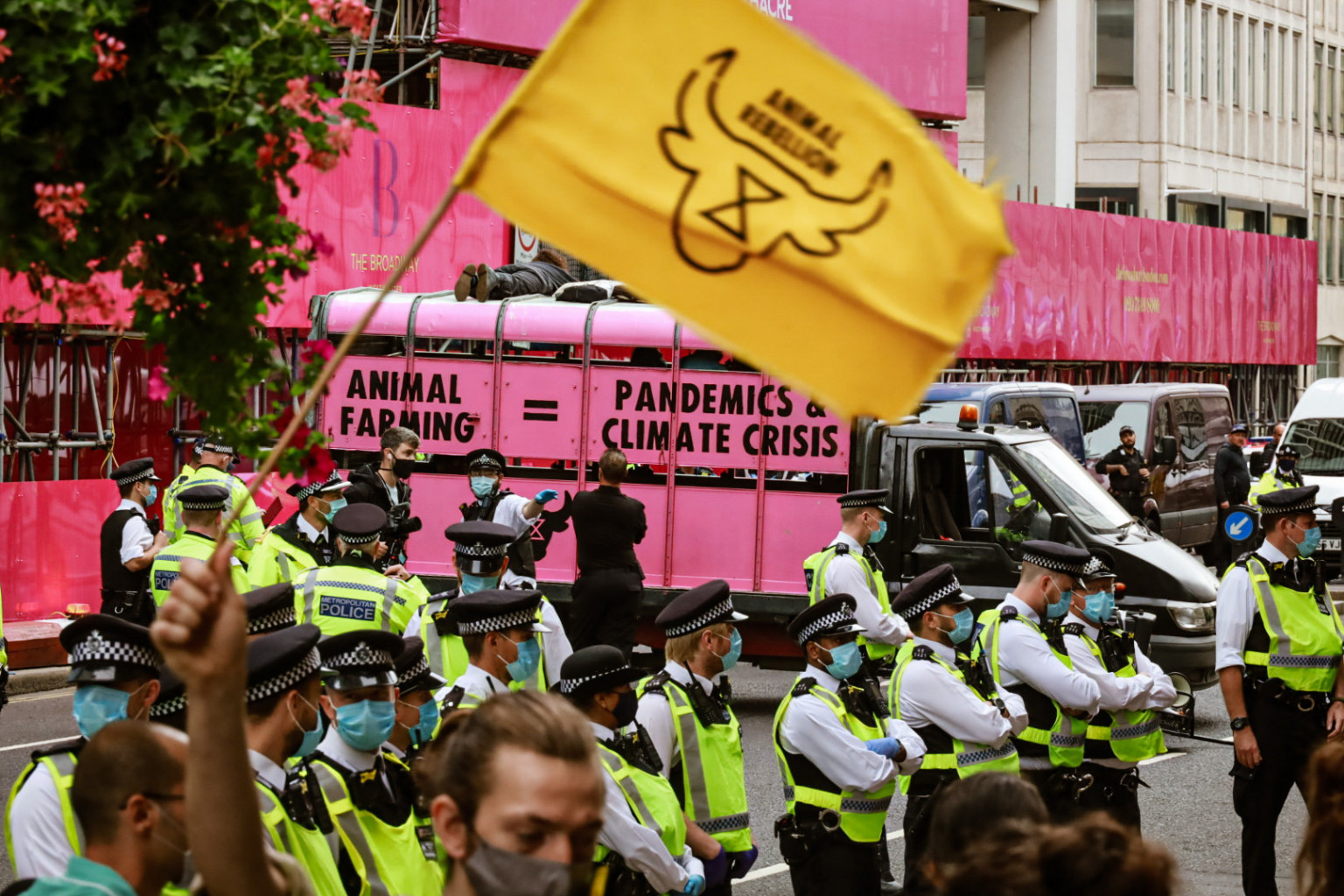
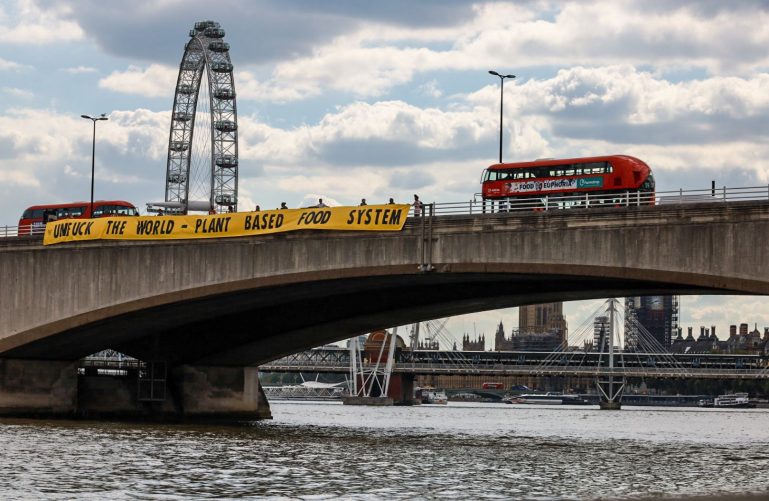
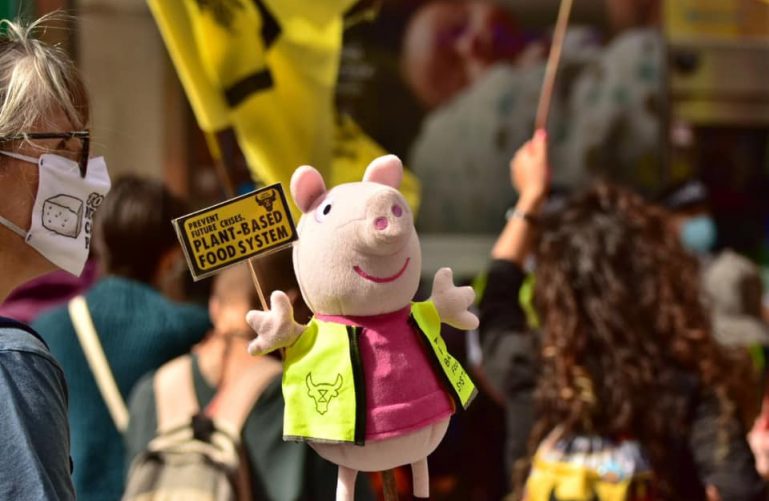
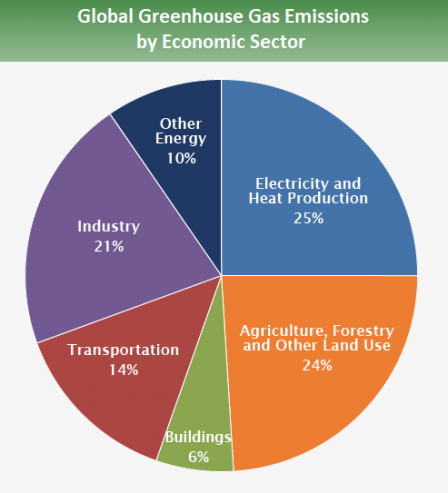
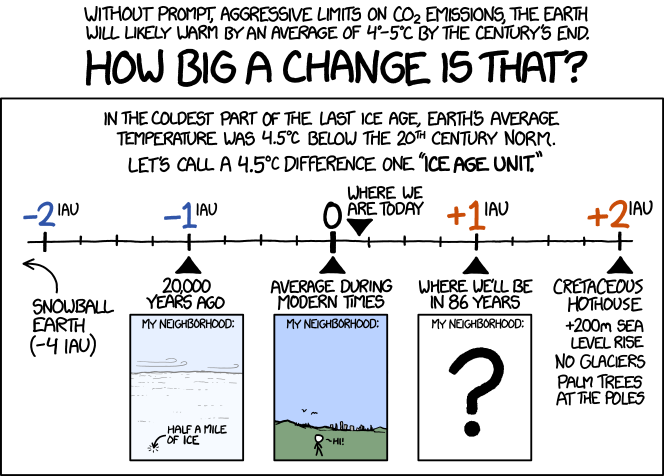
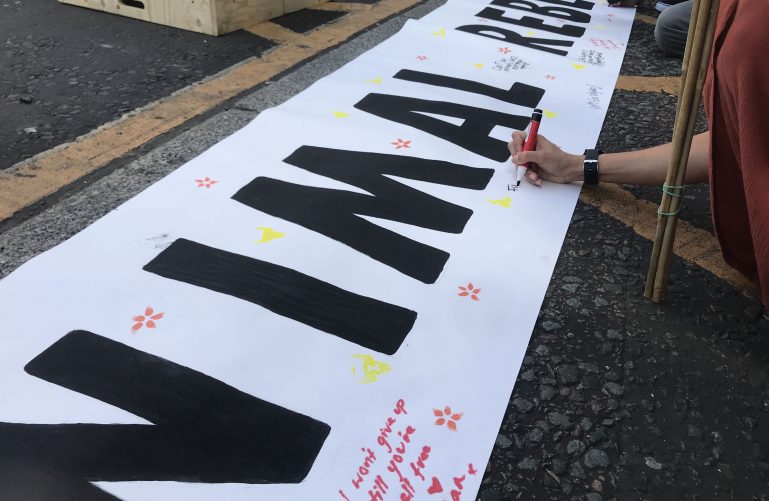
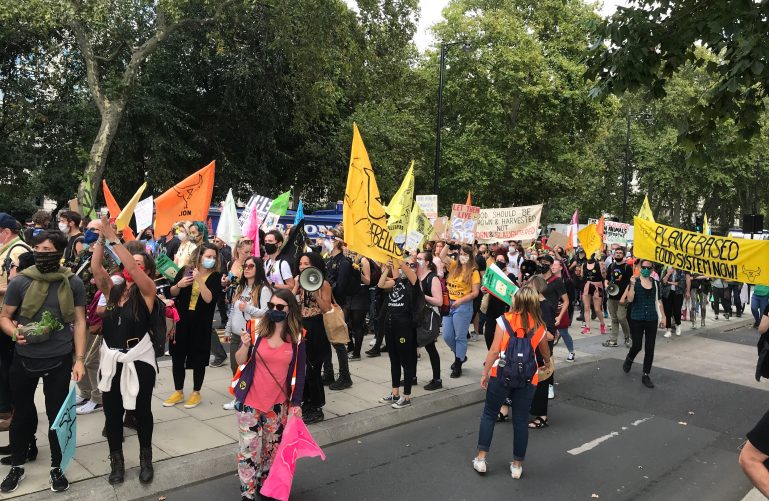
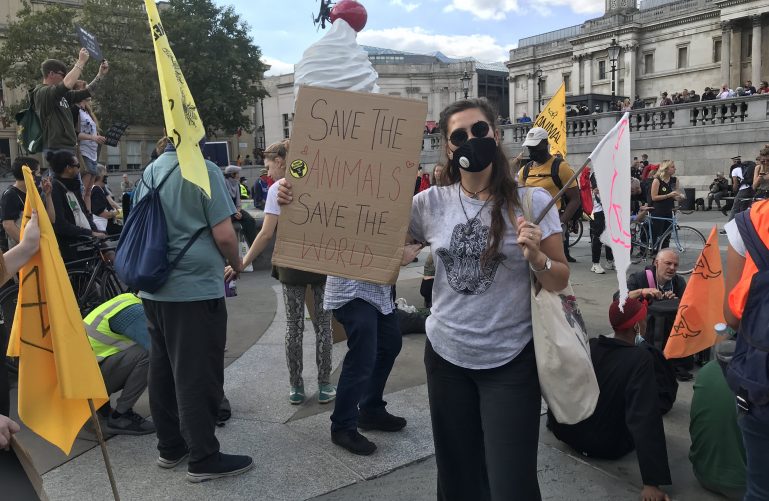
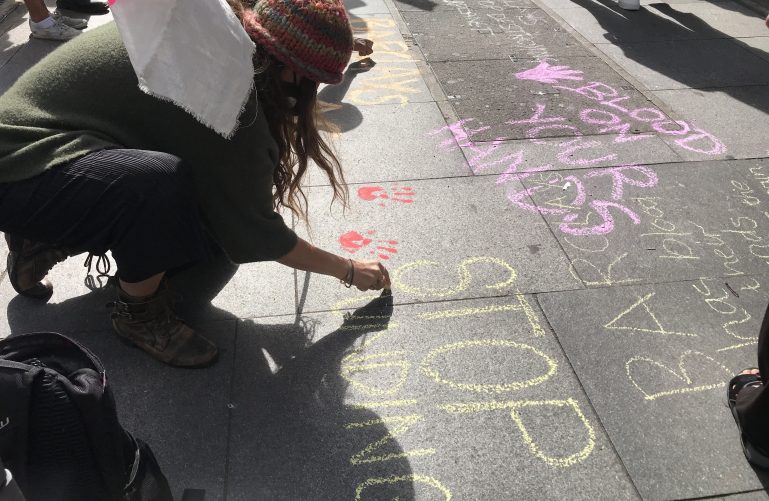
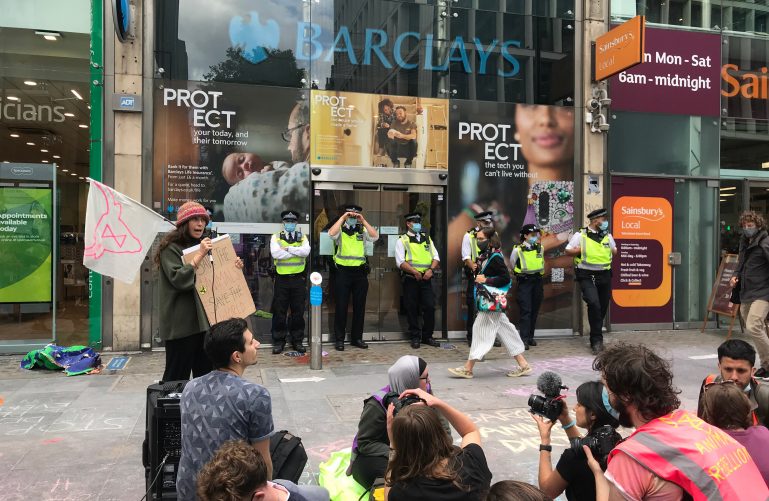
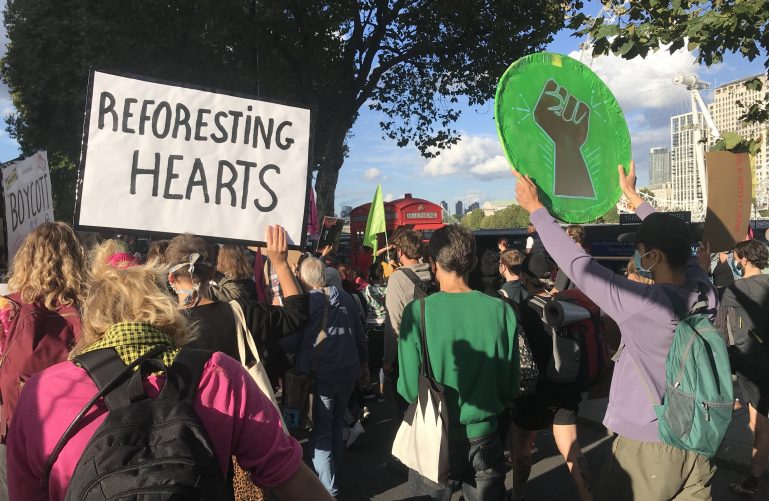
Poignant and powerful
Thank you! 🙂
What an amazing article. Alot of great points here and the most refreshing thing of all is having my perspective changed. I’ve shared the article in the hope that it reaches other people too.
That’s great, thanks so much for the kind feedback. I’m so pleased you’ve found it informative! What changed your perspective? And thank you for sharing!
Thanks Han for such a detailed and informative article. These issues are critical but we still don’t see them in prime time news. They are still not part of everyone discussions. They are still considered as problems of niche. The world need to understand and realize that we are sitting on the tip of iceberg and the world can be saved and made a better place. More liveable, breathable and healthier.
We need more people like you, to protest, to write, to create, make other hear and to inspire the world. Goodspeed to you and everyone standing alongside you in these protests and challenging times.
Thank you Kanishka. You’re write, these issues are critical and I hope articles like this help to spread the word and evolve our communities into thinking more collectively and ultimately less destructively. I really appreciate the feedback and support and it would be great if you could help to continue to spread the message further to connect, inspire and unite as many people as we can! Click share and spread the love. Sending you all the good vibes, Han x